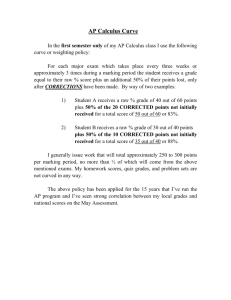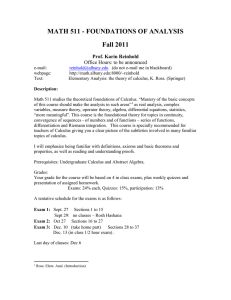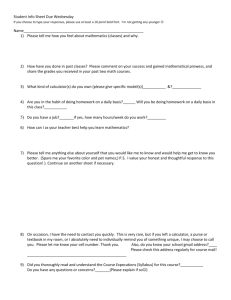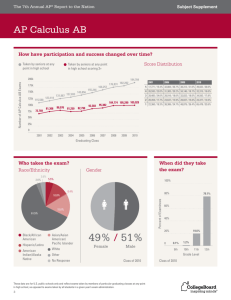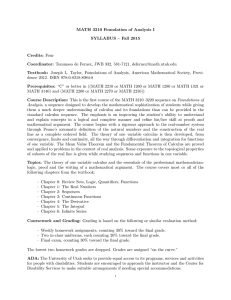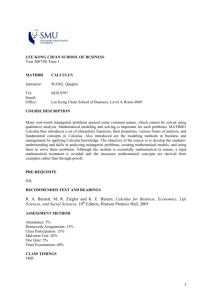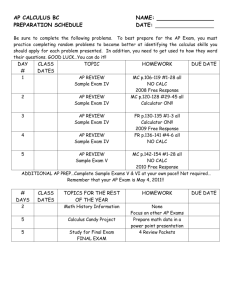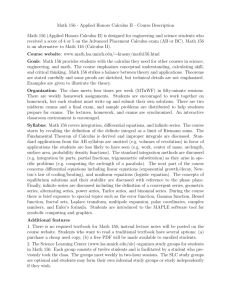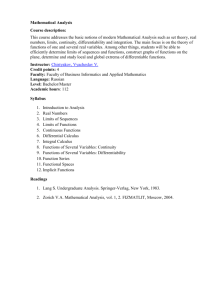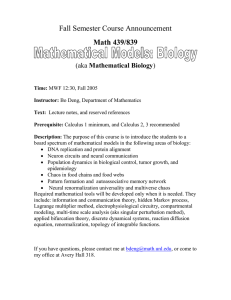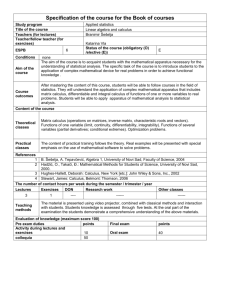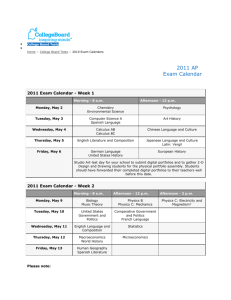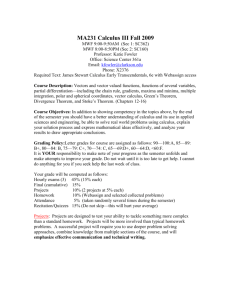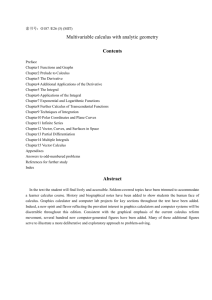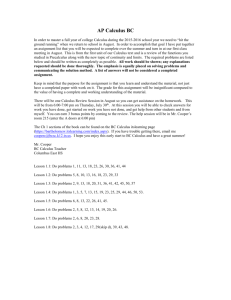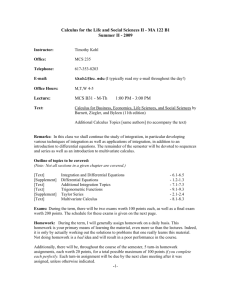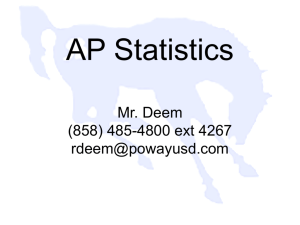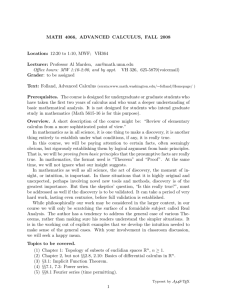Statement concerning Symbolic Reasoning:
advertisement
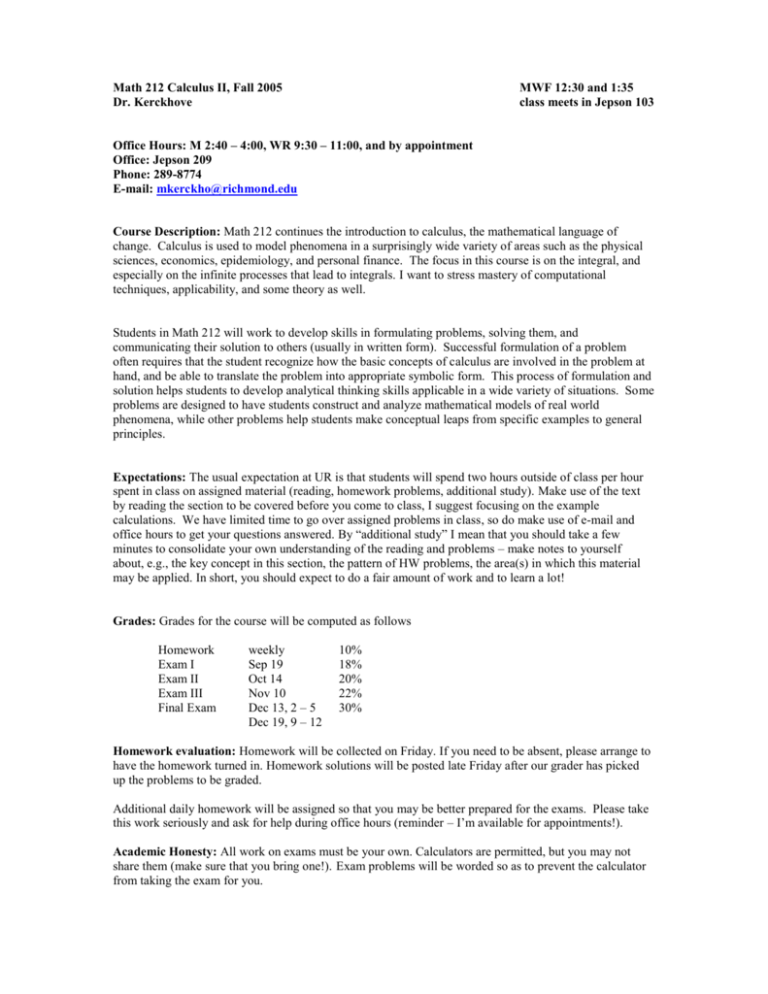
Math 212 Calculus II, Fall 2005 Dr. Kerckhove MWF 12:30 and 1:35 class meets in Jepson 103 Office Hours: M 2:40 – 4:00, WR 9:30 – 11:00, and by appointment Office: Jepson 209 Phone: 289-8774 E-mail: mkerckho@richmond.edu Course Description: Math 212 continues the introduction to calculus, the mathematical language of change. Calculus is used to model phenomena in a surprisingly wide variety of areas such as the physical sciences, economics, epidemiology, and personal finance. The focus in this course is on the integral, and especially on the infinite processes that lead to integrals. I want to stress mastery of computational techniques, applicability, and some theory as well. Students in Math 212 will work to develop skills in formulating problems, solving them, and communicating their solution to others (usually in written form). Successful formulation of a problem often requires that the student recognize how the basic concepts of calculus are involved in the problem at hand, and be able to translate the problem into appropriate symbolic form. This process of formulation and solution helps students to develop analytical thinking skills applicable in a wide variety of situations. Some problems are designed to have students construct and analyze mathematical models of real world phenomena, while other problems help students make conceptual leaps from specific examples to general principles. Expectations: The usual expectation at UR is that students will spend two hours outside of class per hour spent in class on assigned material (reading, homework problems, additional study). Make use of the text by reading the section to be covered before you come to class, I suggest focusing on the example calculations. We have limited time to go over assigned problems in class, so do make use of e-mail and office hours to get your questions answered. By “additional study” I mean that you should take a few minutes to consolidate your own understanding of the reading and problems – make notes to yourself about, e.g., the key concept in this section, the pattern of HW problems, the area(s) in which this material may be applied. In short, you should expect to do a fair amount of work and to learn a lot! Grades: Grades for the course will be computed as follows Homework Exam I Exam II Exam III Final Exam weekly Sep 19 Oct 14 Nov 10 Dec 13, 2 – 5 Dec 19, 9 – 12 10% 18% 20% 22% 30% Homework evaluation: Homework will be collected on Friday. If you need to be absent, please arrange to have the homework turned in. Homework solutions will be posted late Friday after our grader has picked up the problems to be graded. Additional daily homework will be assigned so that you may be better prepared for the exams. Please take this work seriously and ask for help during office hours (reminder – I’m available for appointments!). Academic Honesty: All work on exams must be your own. Calculators are permitted, but you may not share them (make sure that you bring one!). Exam problems will be worded so as to prevent the calculator from taking the exam for you.

